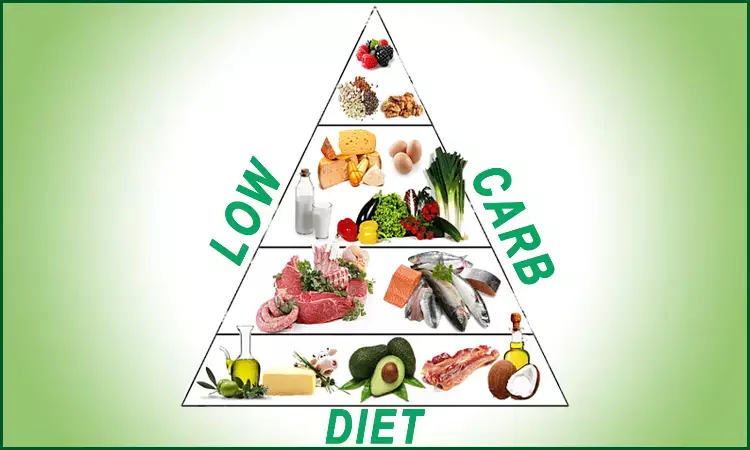- Home
- Medical news & Guidelines
- Anesthesiology
- Cardiology and CTVS
- Critical Care
- Dentistry
- Dermatology
- Diabetes and Endocrinology
- ENT
- Gastroenterology
- Medicine
- Nephrology
- Neurology
- Obstretics-Gynaecology
- Oncology
- Ophthalmology
- Orthopaedics
- Pediatrics-Neonatology
- Psychiatry
- Pulmonology
- Radiology
- Surgery
- Urology
- Laboratory Medicine
- Diet
- Nursing
- Paramedical
- Physiotherapy
- Health news
- Fact Check
- Bone Health Fact Check
- Brain Health Fact Check
- Cancer Related Fact Check
- Child Care Fact Check
- Dental and oral health fact check
- Diabetes and metabolic health fact check
- Diet and Nutrition Fact Check
- Eye and ENT Care Fact Check
- Fitness fact check
- Gut health fact check
- Heart health fact check
- Kidney health fact check
- Medical education fact check
- Men's health fact check
- Respiratory fact check
- Skin and hair care fact check
- Vaccine and Immunization fact check
- Women's health fact check
- AYUSH
- State News
- Andaman and Nicobar Islands
- Andhra Pradesh
- Arunachal Pradesh
- Assam
- Bihar
- Chandigarh
- Chattisgarh
- Dadra and Nagar Haveli
- Daman and Diu
- Delhi
- Goa
- Gujarat
- Haryana
- Himachal Pradesh
- Jammu & Kashmir
- Jharkhand
- Karnataka
- Kerala
- Ladakh
- Lakshadweep
- Madhya Pradesh
- Maharashtra
- Manipur
- Meghalaya
- Mizoram
- Nagaland
- Odisha
- Puducherry
- Punjab
- Rajasthan
- Sikkim
- Tamil Nadu
- Telangana
- Tripura
- Uttar Pradesh
- Uttrakhand
- West Bengal
- Medical Education
- Industry
Carbohydrate reduction tied to normalization of blood sugar levels in prediabetes: Study

According to a recent study, carbohydrate reduction normalizes blood sugar in over 50% of people with prediabetes. Low carbohydrate diet implies promoting a diet with fewer than 30 grams of total carbs, at least 1.5 grams per kilo of protein, and consumption of dietary fat to satiety)
Patients with prediabetes often live with obesity and metabolic syndrome (MetS), each an independent predictor of type 2 diabetes, and the number of comorbidities is associated with increased risk of type 2 diabetes. Each of these chronic conditions is associated with increased risk of cardiovascular disease, and evidence suggests microvascular damage may be present in patients with prediabetes prior to the development of obvious macrovascular disease. This demonstrates the need to initiate treatment for this high-risk state aimed at reversal of the condition to healthy or lower risk state to prevent or delay the onset of type 2 diabetes.
The purpose of this study was to assess the effects of an alternative approach to type 2 diabetes prevention. Ninety-six patients with prediabetes (age 52 (10) years; 80% female; BMI 39.2 (7.1) kg/m2) received a continuous remote care intervention focused on reducing hyperglycemia through carbohydrate restricted nutrition therapy for two years in a single arm, prospective, longitudinal pilot study.
Data analysis revealed some interesting facts.
- Two-year retention was 75% (72 of 96 participants).
- Fifty-one percent of participants (49 of 96) met carbohydrate restriction goals as assessed by blood beta-hydroxybutyrate concentrations for more than one-third of reported measurements.
- Estimated cumulative incidence of normoglycemia (HbA1c < 5.7% without medication) and type 2 diabetes (HbA1c ≥ 6.5% or <6.5% with medication other than metformin) at two years were 52.3% and 3%, respectively.
- Prevalence of metabolic syndrome, class II or greater obesity, and suspected hepatic steatosis significantly decreased at two years.
- These results demonstrate the potential utility of an alternate approach to type 2 diabetes prevention, carbohydrate restricted nutrition therapy delivered through a continuous remote care model, for normalization of glycemia and improvement in related comorbidities.
"These results demonstrate the potential utility of an alternate approach to type 2 diabetes prevention, carbohydrate restricted nutrition therapy delivered through a continuous remote care model, for reversion of prediabetes and improvement of related comorbidities. This pilot study demonstrated that the majority of patients with prediabetes who chose to enroll in this intervention achieved normoglycemia or normal blood sugar levels and maintained clinically meaningful weight loss through two years, suggesting this intervention utilizing carbohydrate restricted nutrition therapy delivered through a continuous remote care model may provide an additional and alternative approach for type 2 diabetes prevention. Future research may evaluate the effectiveness of this care model versus alternatives for the prevention or delay of progression to type 2 diabetes." The team concluded.
For the full article follow the link: https://doi.org/10.3390/nu13030749
Primary source: Nutrients
Dr Satabdi Saha (BDS, MDS) is a practicing pediatric dentist with a keen interest in new medical researches and updates. She has completed her BDS from North Bengal Dental College ,Darjeeling. Then she went on to secure an ALL INDIA NEET PG rank and completed her MDS from the first dental college in the country – Dr R. Ahmed Dental College and Hospital. She is currently attached to The Marwari Relief Society Hospital as a consultant along with private practice of 2 years. She has published scientific papers in national and international journals. Her strong passion of sharing knowledge with the medical fraternity has motivated her to be a part of Medical Dialogues.
Dr Kamal Kant Kohli-MBBS, DTCD- a chest specialist with more than 30 years of practice and a flair for writing clinical articles, Dr Kamal Kant Kohli joined Medical Dialogues as a Chief Editor of Medical News. Besides writing articles, as an editor, he proofreads and verifies all the medical content published on Medical Dialogues including those coming from journals, studies,medical conferences,guidelines etc. Email: drkohli@medicaldialogues.in. Contact no. 011-43720751


